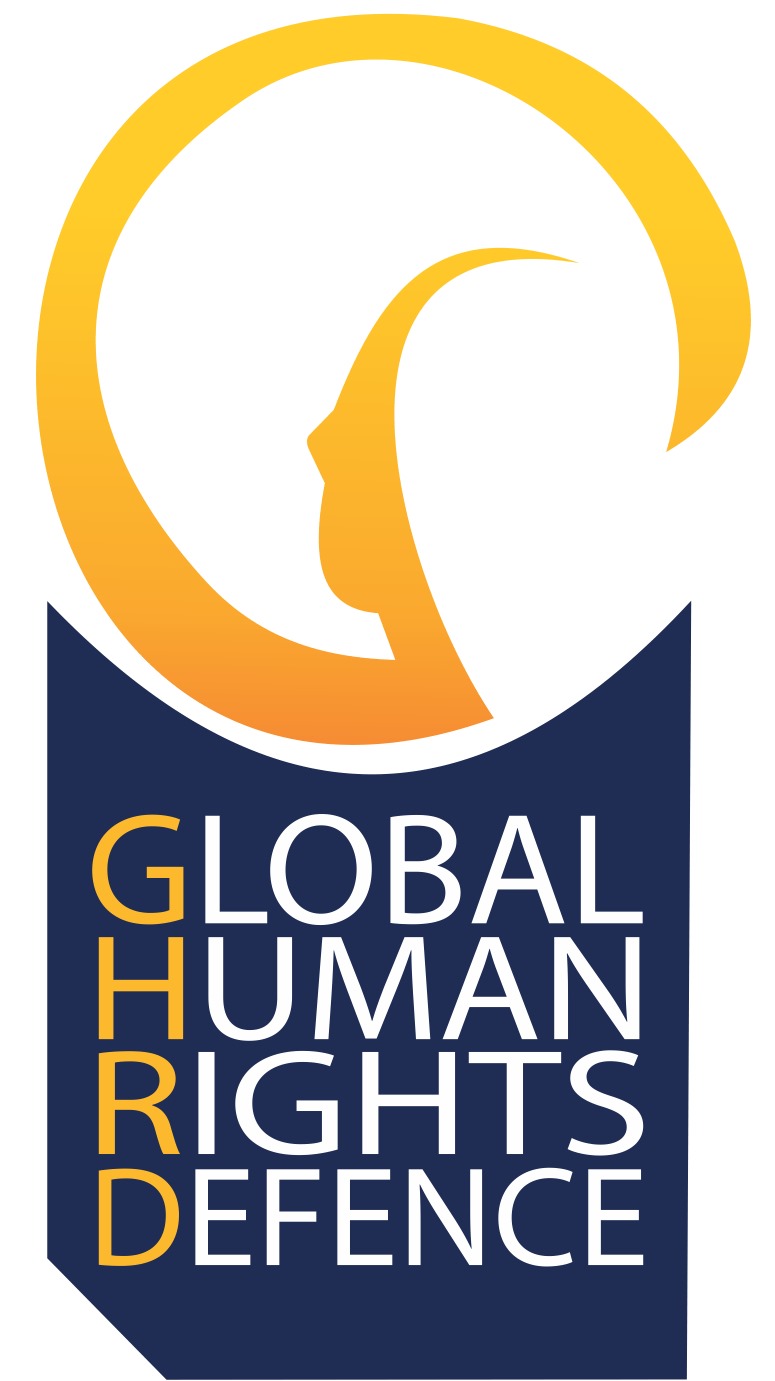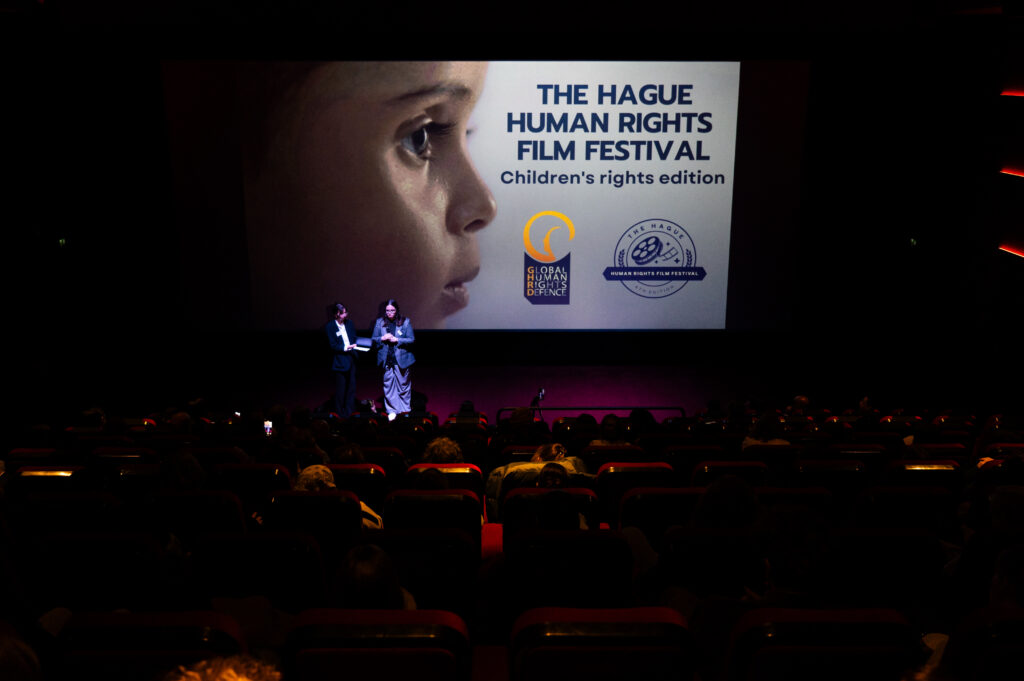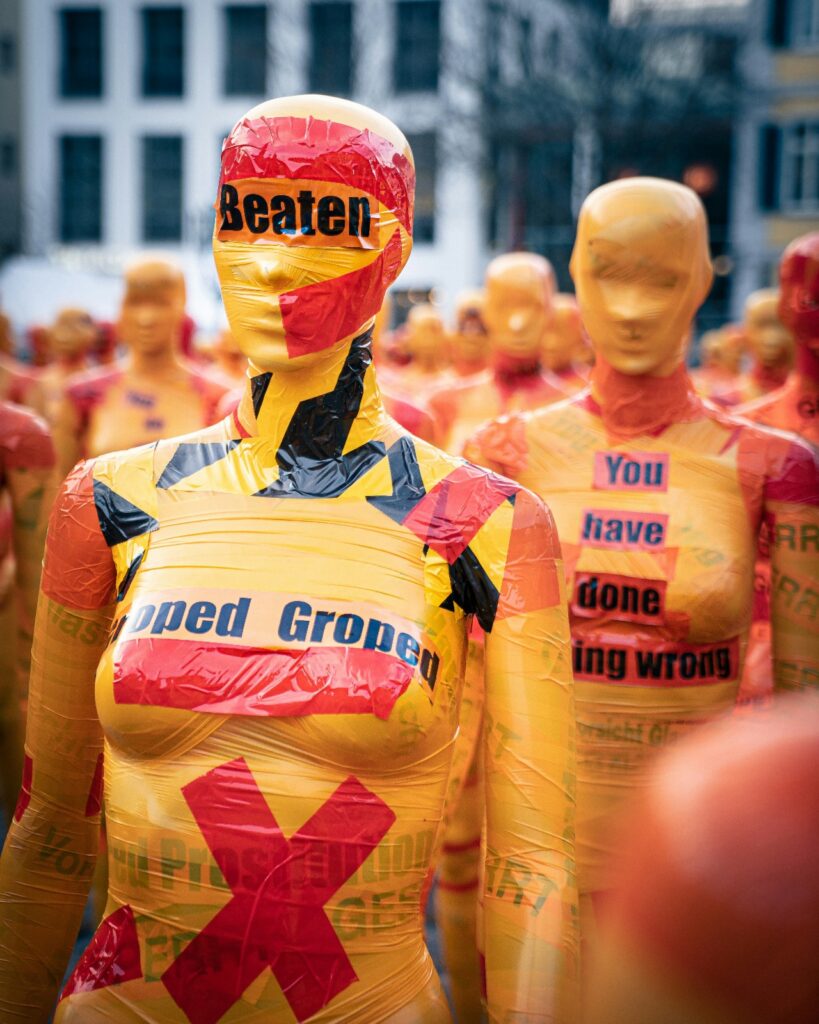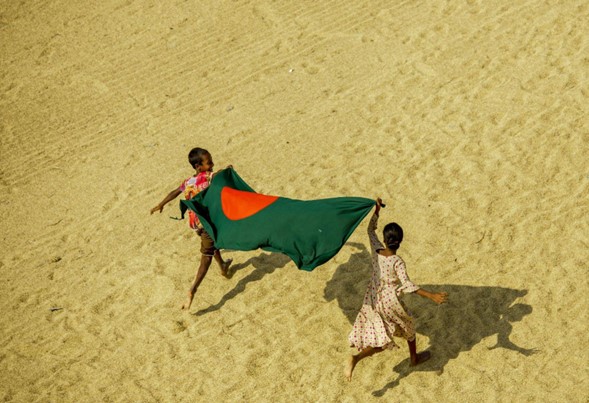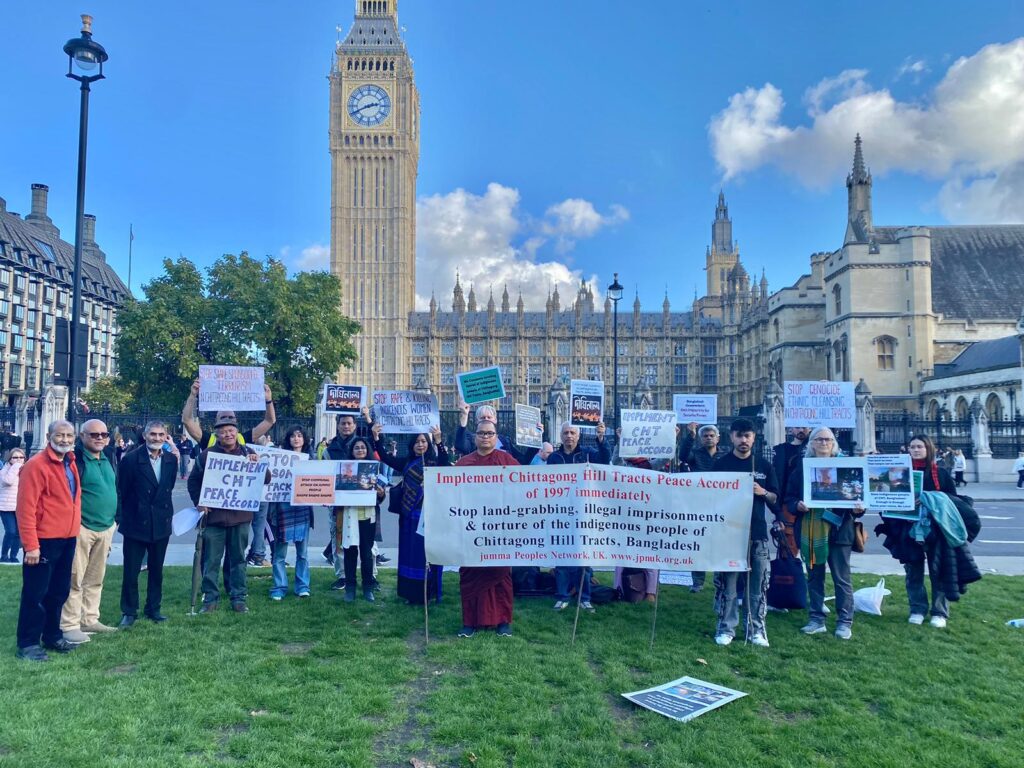- info@ghrd.org
- Mon-Fri: 10.00am - 06:00pm
Author GHRD
25 Nov
Urgent Appeal: Immediate Release and Protection of ISKCON Leader Chinmoy Krishna Das Brahmachari
Global Human Rights Defence urges Bangladesh's government to ensure the safety and fair treatment of ISKCON leader Chinmoy Krishna Das Brahmachari, who was arrested on November 25, 2024.
READ MORE25 Nov
Fourth Edition of the GHRD Film Festival: Children’s Rights
The 4th edition of the Hague Human Rights Film Festival showcased five documentaries on children's rights, highlighting global challenges like forced marriage, war, and famine, and emphasized the importance of safeguarding their rights.
READ MORE25 Nov
Intersecting: Gender Equality and Public Health
In recognition of the International Day for the Elimination of Violence Against Women, GHRD highlights the alarming intersection of gender-based violence and public health. With statistics showing that 70–90% of women in Pakistan experience domestic violence and LGBTQIA+ individuals facing similarly high levels of abuse, this crisis transcends gender and profoundly impacts public health.
READ MORE22 Nov
Hindus Victims of Political and Extremist Persecution in Bangladesh
The forced removal of Sheikh Hasina's government in Bangladesh has sparked violence against the Hindu minority, demanding immediate protection and equal treatment. GHRD urges international pressure and reforms.
READ MORE22 Nov
Beyond Recognition: Political, Social, and Legal Barriers to Acknowledging the 1971 Bangladesh Genocide
As Bangladesh marks more than 50 years since its liberation war, the quest for international recognition of the atrocities committed during the 1971 genocide remains difficult to address due to political, social and legal challenges. Despite the nation's evolution from a struggling post-war country to a developing state, the memory of the genocide is obscured by political arguments, different stories about what happened and the lack of transparent laws. These contrary accounts raise important questions about the ongoing struggle for justice and recognition despite the silence surrounding this history.
READ MORE14 Nov
The Biharis in Bangladesh: A Reflection on Violence, Victimhood, and Conflict
The Bihari community in Bangladesh has faced decades of marginalisation, statelessness, and human rights abuses stemming from their role in the 1971 Liberation War. This article explores their historical plight, legal neglect, and the urgent need for justice and protection.
READ MORE14 Nov
The Universal Periodic Review at the Human Rights Council: Nicaragua and the Democratic Republic of Congo
During the fourth cycle of the Universal Periodic Review the human rights situation in Nicaragua and the Democratic Republic of Congo is evaluated at the Human Rights Council. States note progress but concerns and areas for improvement remain.
READ MORE2 Nov
Why the Intellectuals? A Heinous War Strategy to Cripple Bangladesh
The won war of Bangladesh liberation was marked by a final effort of eliticide, aimed at wiping out the intelligentsia and key occupational classes. This article reflects on several historical developments that formed the basis of Bangladesh's identity, highlighting how the elimination of intellectuals sought to cripple the nation's future and undermine its potential for self-determination. Both the unrecognized Bangladesh Genocide and Operation Searchlight represent suppressed narratives, struggling to fit into international recognition frameworks.
READ MORE25 Oct
Political Prisoners in Vietnam: A Human Rights Crisis and International Law Violations
In Vietnam, the struggle for democracy and human rights is met with harsh repression, as activists, journalists, and dissidents face imprisonment for challenging the authoritarian rule of the Communist Party. Despite its commitments under international human rights treaties, the Vietnamese government continues to silence critics through vague and restrictive laws that criminalize free speech. This article delves into the plight of political prisoners in Vietnam, exposing the legal mechanisms behind their persecution and the broader implications for civil liberties in the country.
READ MORE19 Oct
Jumma Peoples Network UK Press Release
A peaceful demonstration in London by the Jumma Peoples Network UK, Amnesty International, Survival International, and Friends of CHT against Bengali settlers' violent attacks on the Indigenous Jumma peoples.
READ MOREABOUT US
Global Human Rights Defence (GHRD) is a dedicated advocate for human rights worldwide. Based in The Hague, the city of peace and justice. We work tirelessly to promote and protect the fundamental rights of individuals and communities. Our mission is to create a more just and equitable world, where every person's dignity and freedoms are upheld. Join us in our journey towards a brighter future for all.
ALL CONTACTS
-
Riviervismarkt 5-unit 2.07
2513 AM The Hague - Phone +31 62 72 41006
- info@ghrd.org
-
Mon-Fri: 10:00am - 06:00pm
Saturday & Sunday Closed - Bank Details: NL69 ABNA 0417 9430 24
- Chambers of commerce NR. 27261631
SUBSCRIBE
Stay informed and be part of change - Subscribe to our newsletter today!
- Copyright of ghrd 2023. Powered by Desmantle Studio.
